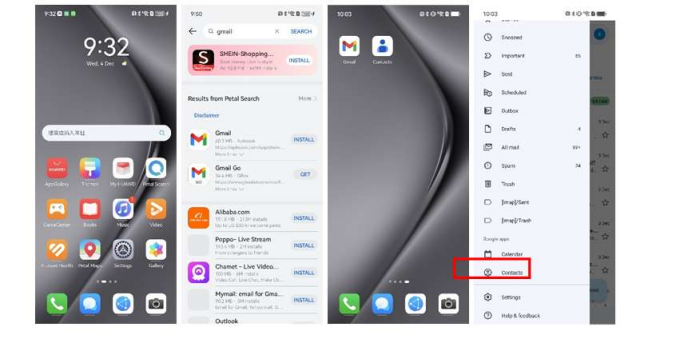Email has become an essential tool in modern foreign trade, simplifying communication and streamlining processes between international businesses. Whether it’s confirming deals, sending contracts, or discussing pricing, email is central to the fast-paced world of global commerce. In this article, we’ll explore how email plays a crucial role in foreign trade, its benefits, security considerations, and how to optimize email management for international business.
How Does Email Facilitate International Trade Communication?
Email has transformed international trade communication, offering businesses a fast and reliable platform for exchanging information.
Streamlining Communication Between Parties
Email enables quick communication between international parties, regardless of time zones or geographical distance. This instant communication is key for businesses engaged in cross-border transactions, as it allows companies to confirm orders, address issues, and negotiate in real time.
Email as a Reliable Record-Keeping Tool
Email also serves as an excellent record-keeping tool. For any business transaction, having an email thread documenting decisions, agreements, and instructions is crucial for legal protection and transparency. These written records can be referred to at any time during the transaction process.
The Speed and Efficiency of Email for Global Transactions
The speed at which emails are delivered and the ability to quickly exchange important files (such as contracts, invoices, and product details) make email a time-efficient medium. This enhances productivity in foreign trade, where delays can be costly.
What Are the Key Benefits of Using Email in Foreign Trade?
Email plays an integral part in the functioning of modern foreign trade, providing numerous advantages to businesses.
Cost-Effective and Accessible Communication
Unlike phone calls or postal services, email is a low-cost option for international communication. It eliminates the need for expensive international calls or postal fees, making it a more economical choice for businesses of all sizes.
Real-Time Communication for Timely Decisions
In the fast-paced world of international trade, decisions often need to be made quickly. Email allows businesses to communicate in real time, ensuring timely decisions, even when dealing with partners and clients in different time zones.
Email’s Role in Legal and Contractual Transactions
Emails also play a crucial role in formalizing business transactions. Contracts and agreements can be sent electronically, enabling businesses to initiate transactions faster and more efficiently. Digital signatures and encrypted emails enhance this process, ensuring both security and authenticity.
How Can Businesses Ensure Secure Email Communication in Foreign Trade?
Security is a major concern when using email for international trade, especially when sensitive documents are involved.
Securing Sensitive Trade Documents via Email
Businesses must take steps to protect confidential information sent via email. This includes using encryption tools to protect the content of emails and ensuring that attachments, such as invoices or contracts, are sent securely. Many email services offer end-to-end encryption, making it harder for hackers to access the data.
Best Practices for Email Security in International Deals
To safeguard email communications, businesses should adopt best practices such as using strong passwords, enabling two-factor authentication, and regularly updating security software. Additionally, employees must be trained to recognize phishing emails and avoid clicking on suspicious links.
How to Use Gmail on Huawei Devices for Foreign Trade Emails?
For businesses using Huawei devices, Gmail offers a convenient and efficient email platform for managing international trade communications. Learning how to use gmail in huawei can streamline your foreign trade emails, enabling better organization, security, and accessibility. With the right setup, Gmail can help manage communication with international clients and partners effectively on Huawei smartphones.
Setting Up Gmail on Huawei Phones
Setting up Gmail on Huawei devices is straightforward. Users can download the Gmail app from the Google Play Store and log in with their Google account credentials. Huawei users can easily sync their Gmail account with the device, enabling seamless access to emails on the go.

Gmail Features for Efficient Email Management on Huawei
Gmail on Huawei offers various features that can boost productivity in foreign trade. The labels and filters feature allows businesses to organize emails by category (e.g., orders, inquiries, invoices), ensuring quick access to important information. Additionally, Google Drive integration allows for easy file sharing and storage of documents like contracts and invoices.
Tips for Optimizing Gmail on Huawei for Business Communication
To optimize Gmail for business communication on Huawei, users should customize the app’s notification settings to stay updated on important emails. Also, setting up multiple email accounts for different departments or partners can help streamline communication and ensure no important emails are missed.
Conclusion
Email continues to be a fundamental tool in foreign trade transactions. It enables quick, efficient, and secure communication between businesses across borders. By understanding how to leverage email for international dealings, businesses can enhance their productivity and reduce the chances of errors or delays. As digital communication evolves, email will remain a key player in simplifying and securing trade operations globally. Whether you’re sending purchase orders, negotiating contracts, or sharing important trade documents, email remains indispensable in foreign trade communication.
